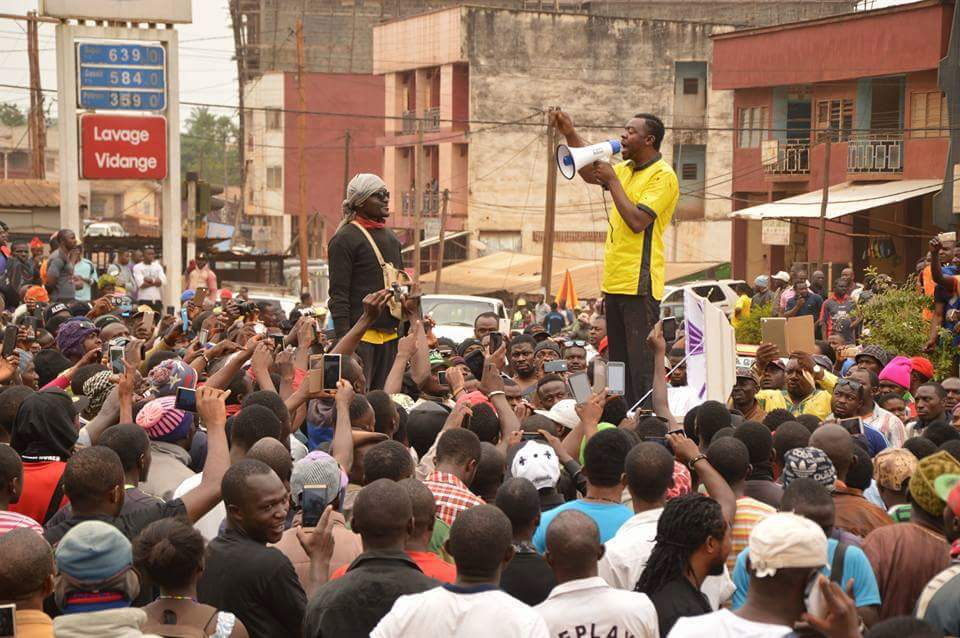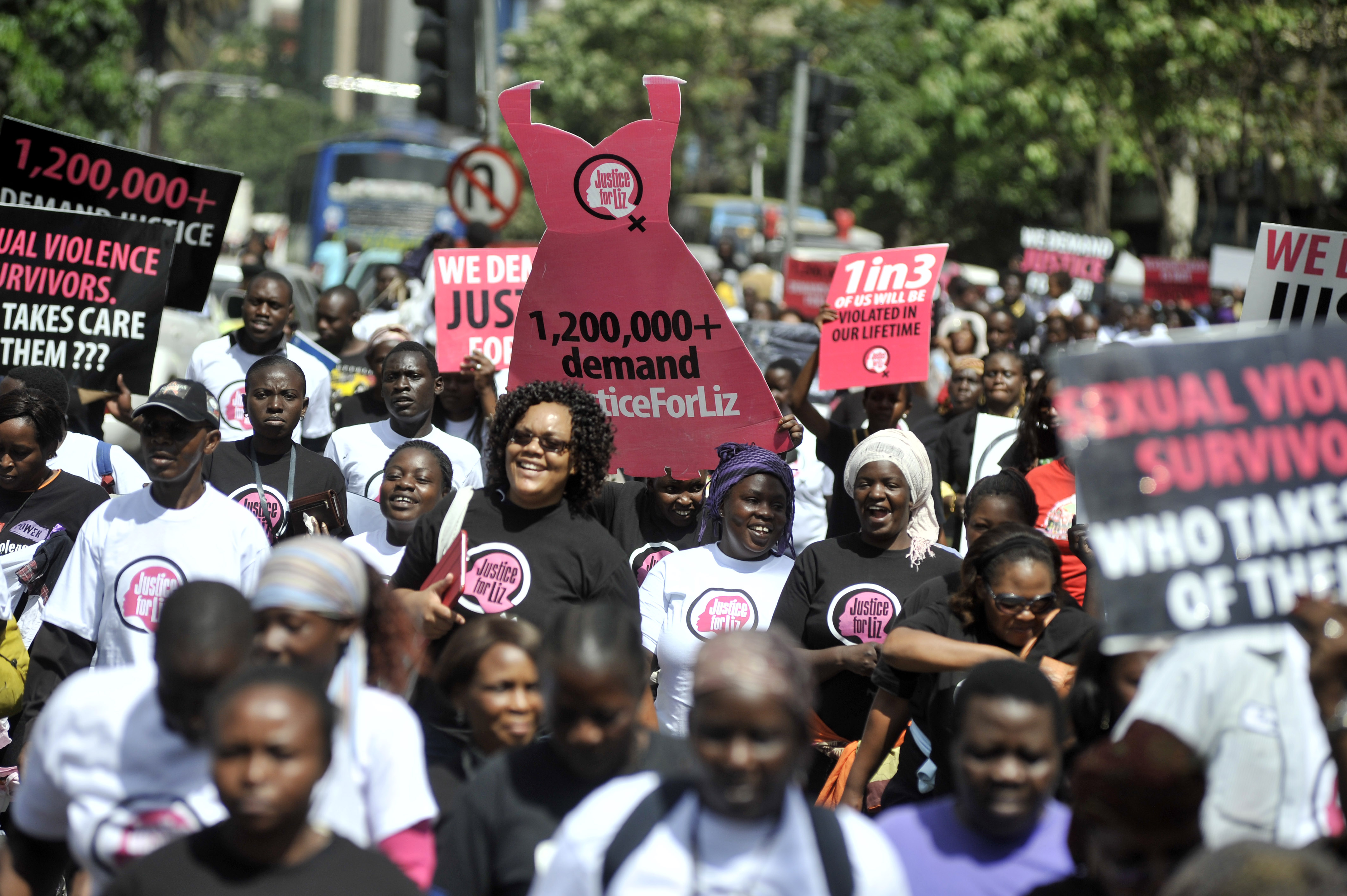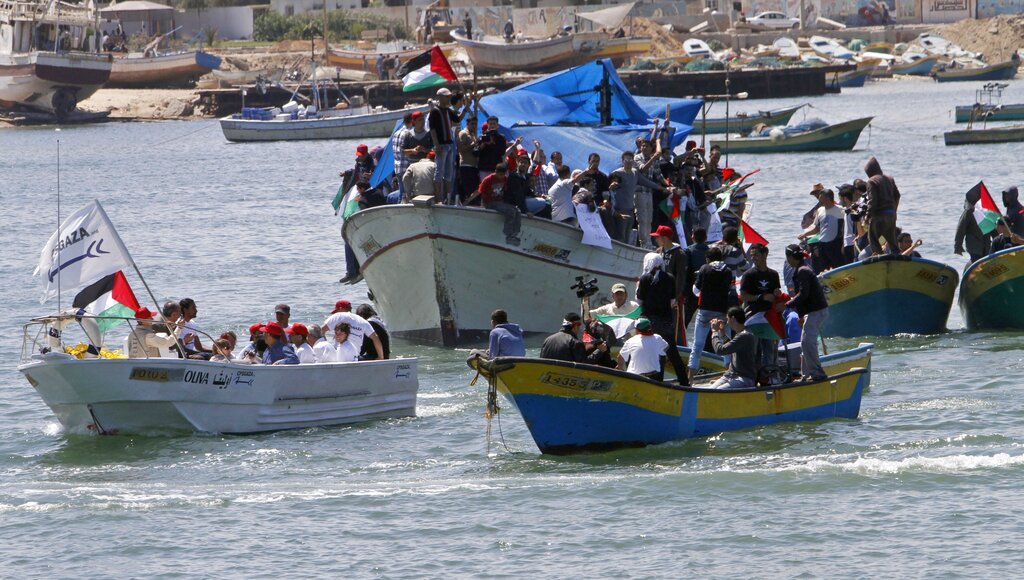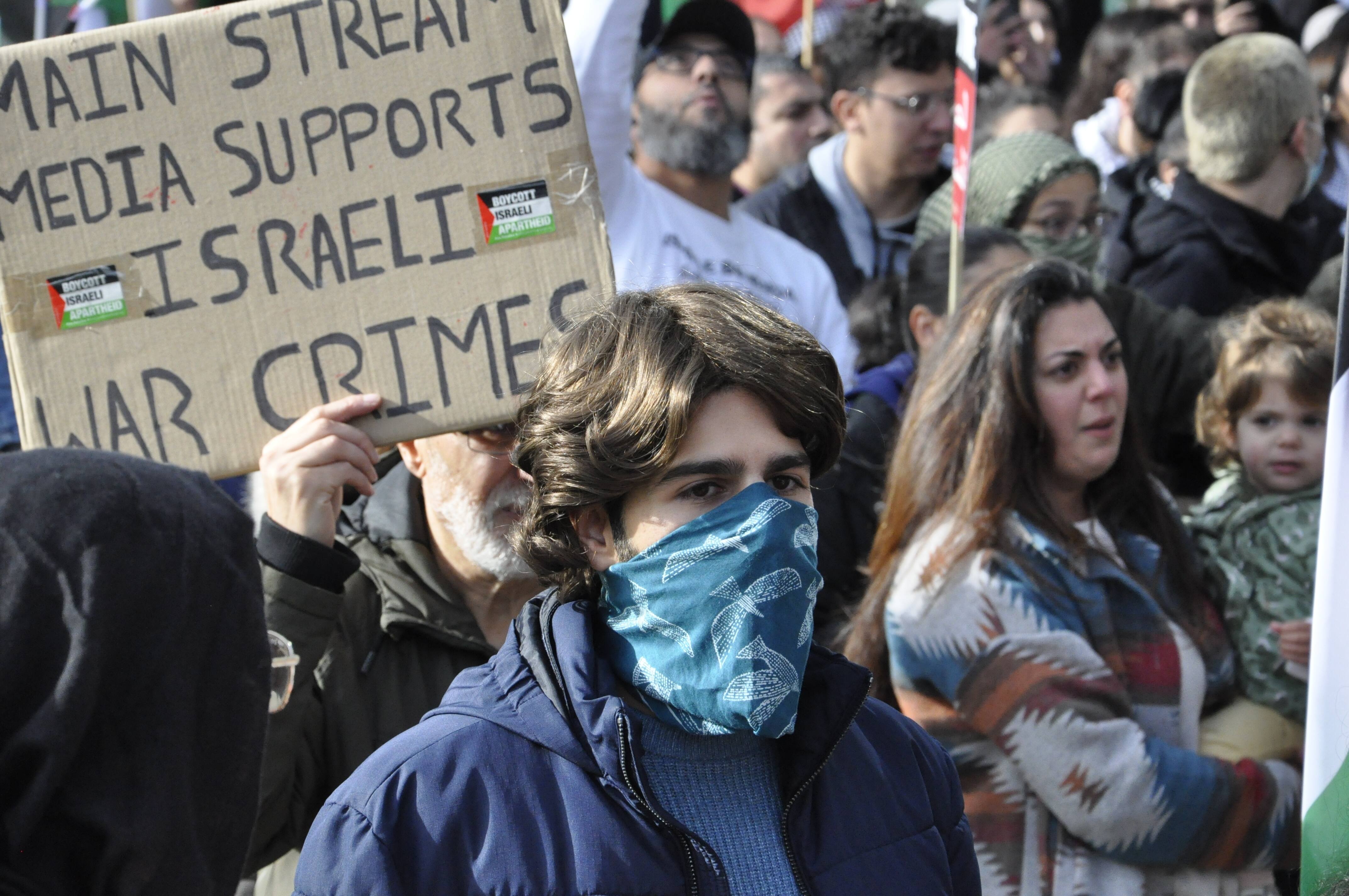الطموح المبالغُ فيه والممزوج بالكسل والرعونة، قد يقود الصحفيين إلى البحث عن طرق سهلة وسريعة لكتابة قصص تحقق الانتشار الواسع وتقود إلى الشهرة. هذا الطريق قد يضمن للصحفيين فترة جيدة من الحفاوة والامتيازات وربما الجوائز، لكن نهايته عادة ما تكون مليئة بالكثير من العار والسقوط في الهاوية والخروج من دائرة الإعلام تماما، أو ما يسمى الانتحار المهني في الإعلام (Career Suicide).
الكذب في الإعلام لا يدوم طويلا، وسيكون أقصر في السنوات القادمة؛ مع ازدياد أدوات التحقق من المعلومات، سواء من قبل الصحفيين الآخرين أو المتابعين أنفسهم، الأمر الذي يجب أن يدفع الصحفيين إلى الالتزام بالحقيقة، دون محاولة خلق أي أحداث أو إضافة معلومات زائفة، حتى وإن كانت بهدف تدعيم رسالة القصّة الإخبارية، لأن غاية خدمة القضايا الإنسانية العادلة لا تكون عبر وسيلة الكذب والتضليل.
فيلم "قصّة حقيقية".. العار بعد الغرور!
يروي فيلم "قصة حقيقية" (True Story) المبني على أحداث واقعية، قصة الصحفي الأميركي مايكل فينكل الذي عمل في صحيفة "نيويورك تايمز"، وعلاقته مع أحد المتهمين بقتل عائلته. تلك العلاقة بدأت في فترة كانت حياة فينكل المهنية قد شارفت على الانتهاء، بسبب اكتشاف الصحيفة أنه زيّف حقائق في عدد من القصص التي كتبها، الأمر الذي انتهى بإقالته ورفض التعامل معه من قبل بقية المؤسسات الصحفية الأخرى، وما كان ليعود إلى عالم الصحافة لولا صدفة العلاقة بهذا المتهم الذي انتحل اسم فينكل حين تم إلقاء القبض عليه.
الفيلم يضع أمام المشاهد شخصيتين تستخدمان نفس التقنية للخداع؛ إجادة التزييف عبر الكتابة القصصية الاحترافية، حيث وجد المتهم بقتل زوجته وأطفاله من علاقته مع فينكل، فرصة لتحسين مهاراته الكتابية وإغراق فينكل بالتفاصيل المختلقة، بهدف التأثير على سير العدالة عبر كتاب أو قصة صحفية سينشرها فينكل لاحقا.
ينجذب فينكل نحو علاقته مع القاتل بشدّة، بسبب اليأس الشديد الذي أصابه بعد طرده من الصحيفة. ذاك الطرد الذي جاء بسبب اكتشاف الصحيفة تلاعب فينكل بالمعلومات المتعلقة بشخصية الطفل "يوسف مالي" التي بنى عليها قصّته التي أثارت الكثير من الجدل "هل كان يوسف مالي عبدًا؟"(1).
الاكتشاف جاء بعد نشر فينكل قصة مصوّرة عام 2001، تناولت قضية عبودية الأطفال العاملين في زراعة الكاكاو في ساحل العاج وركّزت على الطفل يوسف كأبرز شخصية في القصة، لكن سرعان ما تواصلت منظمة "إنقاذ الطفل" مع الصحيفة لتؤكد أن الطفل الظاهر في الصور ليس يوسف، ليعترف بعدها فينكل بأن يوسف كان واحدا من مجموعة أطفال قابلهم، وأن المعلومات المنشورة عنه مركّبة ومجمّعة من عدّة مقابلات لأطفال مختلفين.
على إثر ذلك، باشرت الصحيفة بالتحقيق في كل القصص السابقة التي عمل عليها فينكل، لتكتشف أخطاء في قصص أخرى وتعتذر عنها للجمهور، وينتهي به المطاف خارج العمل الصحفي. لكن، وبعد عدة شهور، رمت الصدفة بهذا القاتل في طريق فينكل كي يعود بعدها إلى دائرة الأضواء، حيث انتحل القاتل شخصيته خلال فترة هروبه إلى المكسيك، الأمر الذي جذب فينكل إليه وإلى قصّته ودفعه للقائه عدّة مرات.
القاتل طلب من فينكل أن يساعده في صقل مهارته في الكتابة لكي يستطيع رواية "القصة الحقيقية" لما جرى معه كي تتم تبرئته من التهم الموجهة إليه "ظلما" حسب ادعائه، موهمًا فينكل بأنه بريء تماما من قتل زوجته وأطفاله الثلاثة. وبالفعل، بدأ فينكل بالعمل معه على تحسين آليات السرد القصصي وتقنيات الكتابة الصحفية، ليكتشف في وقت متأخر أن مساعي القاتل ما هي إلا محاولة لتضليل العدالة وخلق شكوك توصله إلى البراءة، لكن المحكمة أدانته في النهاية وحكمت عليه بالإعدام.
نشر مايكل قصّة القاتل كريستيان لونغو في كتاب حمل اسم "القصة الحقيقية"، مما ساعده على العودة إلى طريق الكتابة الصحفية مجددًا، لكن الخطأ الصحفي الذي ارتكبه لا يزال يلاحقه إلى اليوم(2).
قلب ناصر خضر المحروق
حصل ناصر خضر السياسي والإذاعي الدنماركي من أصول فلسطينية سورية، على العديد من الجوائز والأوسمة تكريمًا لكتبه التي تناول فيها الاختلافات الثقافية بين الشرق والغرب ومفاهيم الشرف وغيرها، حيث لاقت صدى واسعا مشابها للصدى الذي حققه ناصر في الأوساط الدنماركية كمهاجر جدلي معادٍ للمهاجرين وللمسلمين.
لكن تلك الحفاوة بخضر بين أوساط المثقفين والأكاديميين الدنماركيين، سرعان ما تحولت إلى خيبة أمل لدى الكثير منهم، بعد اكتشاف (2) ممارسة خضر لسرقة فكرية في كتبه التي استخدم فيها جملاً مقتبسة من مصادر أخرى دون الإشارة إليها في كتابه "الشرف والعار" في طبعته الأولى عام 1996. تلك الانتهاكات لحقوق الملكية نُشرت بشكل مفصّل في كتاب صدر عام 2001 بعنوان "الشرف والعار.. احتيال أم حقائق؟".
النقاش الواسع الذي فتحه اكتشاف السرقة الأدبية جعل ناصر خضر عرضة للانتقاد، وأجبره على الاعتراف بالخطأ والاعتذار وتقديم نسخة منقّحة من الكتاب عام 2002.
أعاد خضر الكرّة مرة ثانية بعد سنوات في كتاب "القلب ينزف" المنشور عام 2015، والذي كتبه حين كان عضوًا في البرلمان الدنماركي بالتعاون مع الصحفي ستيغ ماتيسين. ويتحدّث الكتاب ضمن 76 فصلا عما بعد أربع سنوات من الربيع العربي واحتمالات الضوء في نهاية النفق، منتقدًا فيه العديد من الظواهر كالدكتاتورية ورجال الدين وعلاقة العرب بالخبز وأساليب الحوار في الوطن العربي وغيرها.
لم يستغرق اكتشاف سرقة خضر الثانية وقتا طويلا مثل المرّة الأولى، حيث أجرت صحيفة "ويكاند" مراجعة شاملة للكتاب عام 2017، لتكشف أن أحد عشر من فصوله احتوت على جمل مأخوذة من كتب ومقالات دون الإشارة إليها، وصلت في بعض الفصول إلى 83% من النص الكامل للفصل، كان خضر خلالها قد أخذ فصولا مكتوبة بالإنجليزية من كتب منصات مختلفة من الإنترنت -منها ويكيبيديا- وترجمها إلى اللغة الدنماركية.
اعترفت دار النشر بذنبها في السرقة الأدبية (3) وقررت سحب الكتاب وإحراق النسخ المتبقية منه بعد الاعتذار، في حين بقي خضر يلقي باللوم على الصحفي الذي حرر الكتاب، والذي أكد بدوره أنه لم يترجم كلمة واحدة من الإنجليزية، وأنه اعتمد على المراسلات بينه وبين خضر لتحرير الكتاب.
المثير للانتباه في قصّة خضر أن شريكه في العمل الثاني ستيغ ماتيسين صحفي استقصائي ومدرّس للصحافة في كلية رودنغ، فكيف استطاع خضر تمرير كل ذلك من تحت أنفه!
بطل "دير شبيغل" المزيف
على الرغم من أن اكتشاف التزوير الذي مارسه الصحفي كلاس ريلوتيوس، كان خلال فترة عمله بصحيفة "دير شبيغل"، فإنه يمكن أن يكون لقصة البطل المزيف فصول أخرى في الصحف التي نشر فيها ريلوتيوس تحقيقاته حين كان صحفياً حرًّا، والتي لم تجرِ تحقيقا حول المعلومات الواردة في قصصه.
ويبدو أن المجد المهني الذي يتمتع به ريلوتيوس، كان أعلى من أن يضعه ضمن دائرة الشكوك طيلة سنوات عمله، فهو لم يغب عن منصات تكريم الصحفيين منذ العام 2013، الأمر الذي أكسبه نوعًا من المنعة والحصانة بين زملائه ومدرائه في العمل. لذلك، كان صعبًا على شريكه في العمل خوان مورينيو إثبات عدم مهنية كلاس.
بدأت شكوك مورينيو في بمهنية ريلوتيوس بعد نشر "دير شبيغل" قصة أعدها الصحفيان سويا بعنوان "حدود الصياد"، حول مجموعة أهلية تقوم بدوريات على الحدود المكسيكية الأميركية للحد من عبور اللاجئين، حيث شعر خوان أن القصة مختلفة عمّا تم جمعه من معلومات، وأن الاقتباسات والشخصيات في القصة غير واقعية.
بعد ذلك بدأ خوان بالاستقصاء حول الجهد الصحفي الذي بذله كلاس (4)، مستغلا زيارة عمل قام بها إلى الولايات المتحدة للبحث عن الشخصيات التي ذكرها كلاس في قصته، ليكتشف أنه لم يُجرِ المقابلات على أرض الواقع. بعد ذلك أرسل خوان ما توصل إليه إلى إدارة "دير شبيغل" التي بدأت بالتحقيق مع كلاس الذي أنكر في البداية، لكنه اعترف في النهاية بارتكابه الكثير من الأخطاء عن قصد وبطريقة منهجية.
اعترف كلاس أنه ضمّن في العديد من قصصه تصريحات لأشخاص لم يلتقِ بهم ولم يتحدّث إليهم قط، وأنه كان يجمع التصريحات لأشخاص من على وسائل الإعلام الأخرى وتسجيلات الفيديو، وكذلك خلق شخصيات مركبة، كما ألّف حوارات واقتباسات كاملة.
شكّلت "دير شبيغل" لجنة من الصحفيين المخضرمين للتحقيق في قصص كلاس التي أنجزها مع الصحيفة، وعليه نشرت اعتذارًا تفصيليا ضمن تقرير(5) موسّع من 220 صفحة، جرى إعداده بعد مراجعة جميع أعماله. ولولا أنها فعلت ذلك لكانت خسرت الكثير من مصداقيتها التي خُدشت بالفعل.
أما كلاس فأرجع سبب قيامه بهذه الكوارث المهنية إلى "الخوف من الفشل" بعدما أصبح "ناجحاً"، لكن ما قام به أجبره على الاستقالة وإعادة جميع الجوائز التي فاز بها مسبقا، وأصبح كل ما تجده عند البحث عن كلاس على الإنترنت يتعلق بالفضيحة.
بثرة لا تزول في وجه جونسون
كثيرة هي البثور التي تشوه صورة رئيس الوزراء البريطاني بوريس جونسون كسياسي، سواء بسبب اتهامه بإدخال بريطانيا في حالة من عدم الاستقرار، أو بسبب تصريحاته الجدلية ومواقفه الصارمة من المهاجرين والمنقبات. لكن الكارثة المهنية التي لا تزال تلاحق جونسون إلى اليوم، هي تلاعبه واختلاقه بتصريحات صحفية أوردها في مواد أنجزها أثناء فترة عمله كصحفي.
خلال عمله في صحيفة "التايمز" عام 1988، كُلّف جونسون -وهو بعمر الثالثة والعشرين- بالكتابة حول اكتشاف بقايا قصر الملك إدوارد الثاني الذي يعود للقرن الرابع عشر. وفي القصة التي كتبها، أورد جونسون اقتباسًا على لسان المؤرخ البريطاني المعاصر كولين لوكاس، مفاده أن الملك إدوارد كان يستمتع بوجوده في القصر مع عشيقه بيرز غافيتسون، وهو أحد النبلاء الإنجليز.
كان اكتشاف تلاعب جونسون غاية في السهولة بالنسبة لأي مؤرخ أو مهتم بالتاريخ في بريطانيا، فالسير غافيتسون تم إعدامه قبل أكثر من عشر سنوات من بناء القصر، الأمر الذي لم يعجب المؤرخ لوكاس الذي كان حساسًا حول سمعته الأكاديمية، فأعلمَ الصحيفة بذلك، وحين حاول جونسون إصلاح الأمر، كتب متابعة للقصة شملت اقتباسًا آخر من لوكاس، لكنّ الأخير نفى الاقتباس الجديد أيضا، هنا ضاق المحرر تشارلز ويلسون ذرعًا بجونسون وطرده من العمل(6).
وعلى الرغم من أن الواقعة حدثت عام 1988، فإنها تعود إلى الواجهة دوما مع كل عودة لجونسون، حيث أجاب في مقابلة على قناة "البي.بي.سي" عام 2013 عند سؤاله عن هذه الواقعة بأنه قام "صَنْفرَ شيئاً قاله أحدهم"، أي أنه مزج اقتباسين للمؤرخ لوكاس في اقتباس واحد، معترفا بأنه "أمرٌ محرج، وأنا آسف"(7).
خداع الذات
في الكثير من حوادث التلاعب الصحفي، يعتمد الصحفيون على أن اللغة المغايرة التي يكتبون بها أو المنطقة التي يكتبون عنها، أصعب من أن تصل إلى أناس قادرين على كشف الحقيقة. لكن، في الواقع، هذا غير صحيح؛ فسهولة تقنيات الترجمة وتناقل المعلومات، جعل التوصل إلى الحقيقة أسهل، ومن طرف أناس عاديين أحيانًا، خصوصًا مع انتشار التكنولوجيا المساعدة لذلك.
خوان مورينيو الذي كشف قضية "دير شبيغل" يقول "لستُ فائق الذكاء ولستُ مثاليا"، الأمر الذي يعني أن كشف الزيف قد يحتاج إلى جهد بحثي حثيث، لكنّه لن يحتاج إلى عقول خارقة لإثبات الحقيقة. ولذلك، فإن محاولة خداع الجمهور لن تكون سوى خداع من الصحفي لنفسه، وإطالة لأمد الكذبة التي ستنكشف يومًا ما.
وفي هذا السياق، يحدد المحرر الصحفي أحمد الخضري الخطوات التي يستخدمها للتحقق من المعلومات الواردة في الأخبار التي تثير الشكوك، وذلك عبر التقنيات التالية:
-
البحث عن المصادر المذكورة في الأخبار على محركات البحث، ومقارنة تصريحاتهم السابقة بالتصريحات المنشورة.
-
التواصل مع المصادر إذا كانوا متاحين، وسؤالهم عن تصريحاتهم.
-
تدقيق النص سطرا بسطر على محركات البحث.
-
ترجمة بعض الكلمات المفتاحية في الخبر إلى لغات مختلفة، مثل لغة البلد الواردة منه القصة، أو اللغة الأصلية للأشخاص الذين تمت مقابلتهم؛ للتحقق من نشر أي أخبار عن هذه القضية بلغات مختلفة.
وبإمكان الصحفيين أيضا البحث عن مصادر الصور الواردة في الأخبار والبحث عن الأشخاص الظاهرين فيها، ومحاولة الوصول إلى منظمات ومؤسسات عاملة في الميدان لغايات الوصول إلى الأشخاص المذكورين في القصص أو التحقق من المعلومات الواردة فيها.
كما يمكن الاسترشاد بكتاب "دليل التحقق للصحافة الاستقصائية"(8) الذي أصدره مركز الصحافة الأوروبي، وترجمه إلى اللغة العربية معهد الجزيرة للإعلام، إلى جانب كتاب "البحث عن الحقيقة في كومة الأخبار الكاذبة"(9)، ودليل "التحقق من الأخبار"(10) اللذيْن صدرا عن المعهد.
المراجع:
-
https://www.nytimes.com/2001/11/18/magazine/is-youssouf-male-a-slave.html
-
https://politiken.dk/kultur/boger/art5678677/Naser-Khader-skriver-af-fra-sine-kritikere
-
https://www.biography.com/news/true-story-movie-michael-finkel-christian-longo
-
https://www.theguardian.com/politics/2013/mar/25/boris-johnson-eddie-mair-interview
-
https://www.theguardian.com/politics/2013/mar/24/boris-johnson-interview-eddie-mair

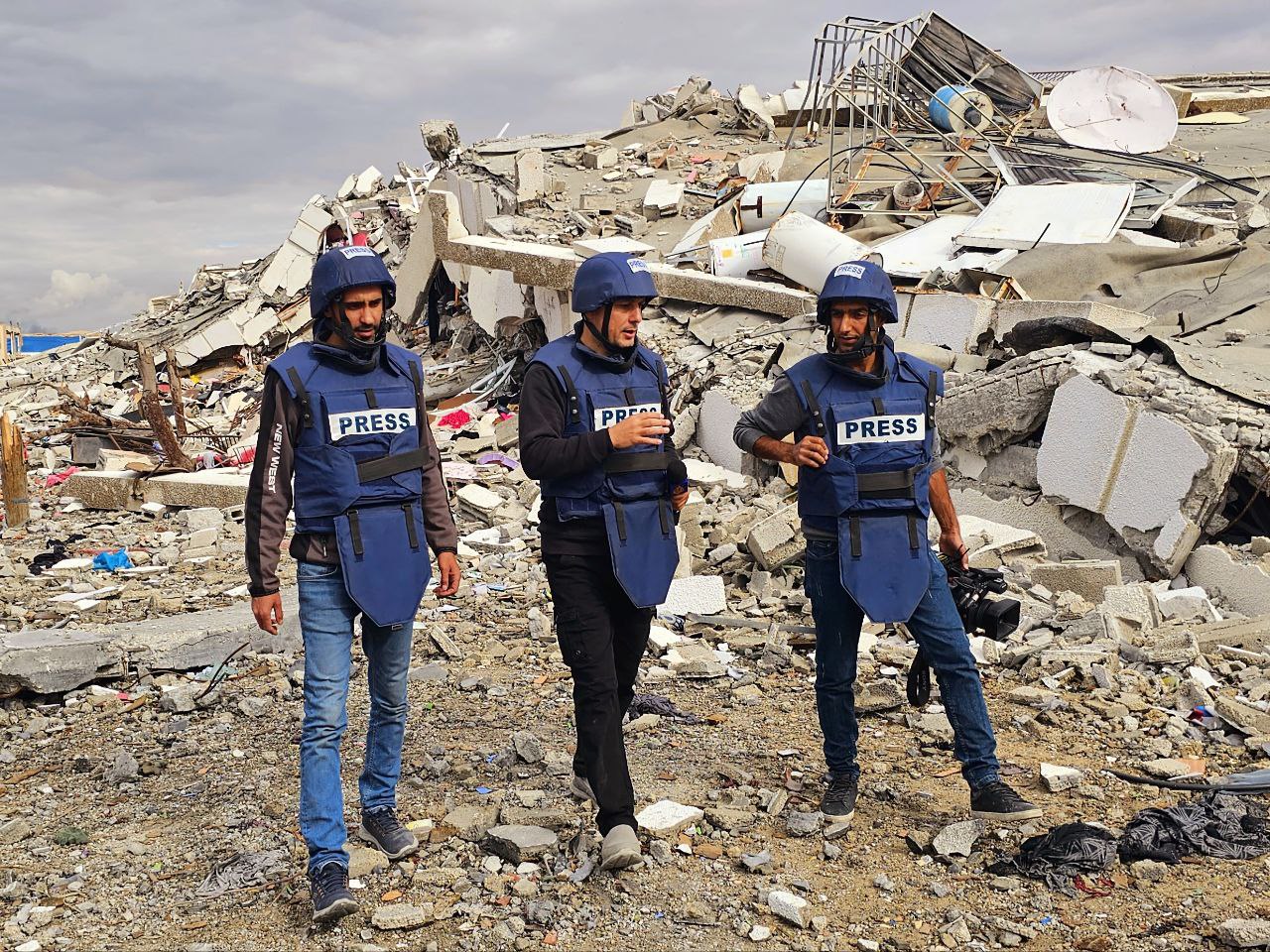

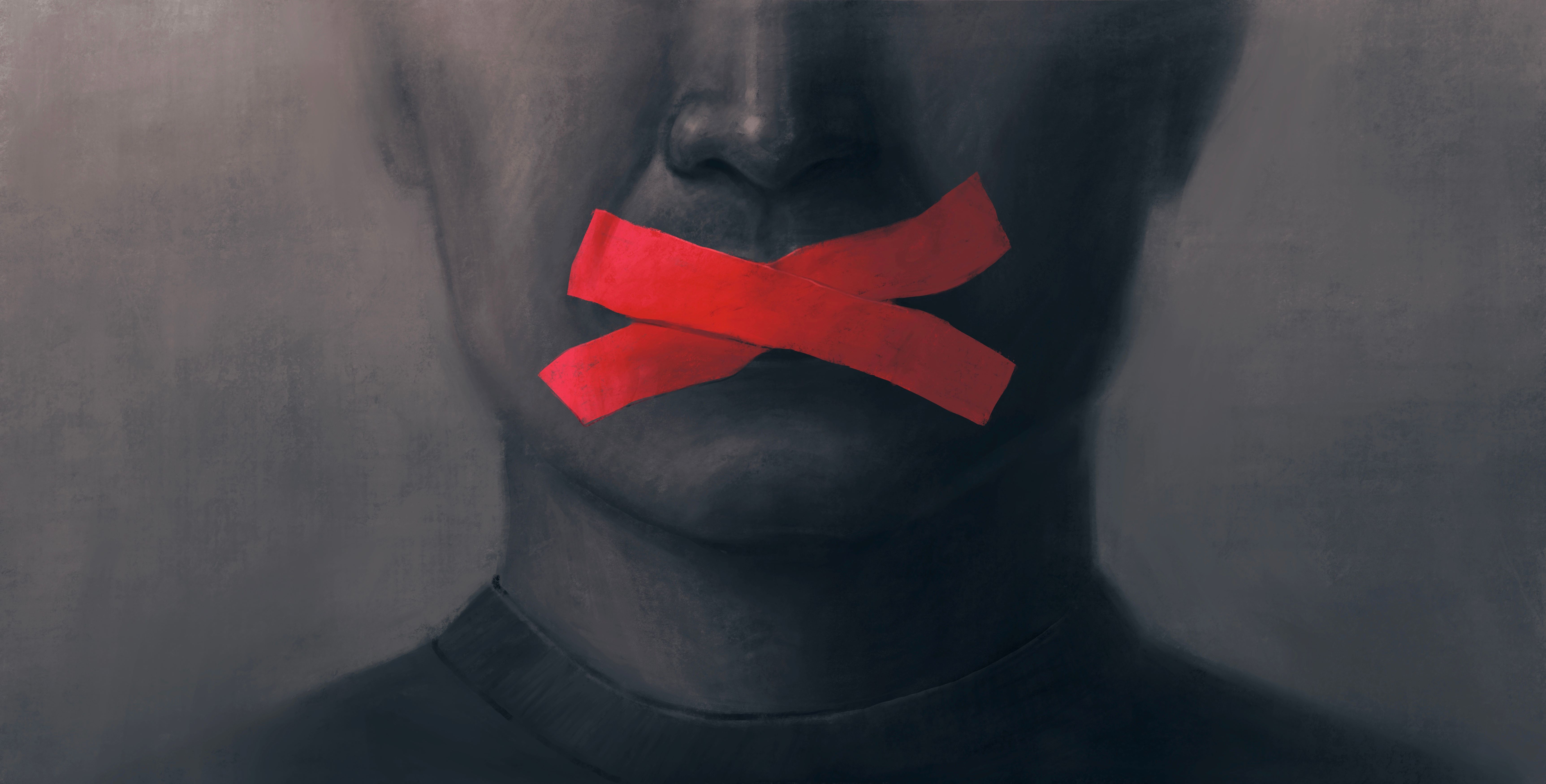



























![A demonstration against Israel's war on Gaza on Paulista Avenue in São Paulo on November 4, 2023, draws attention to the deaths of children while the media focuses on the war against terrorists. [Photo: Lina Bakr]](/sites/default/files/ajr/2024/Picture1.png)

